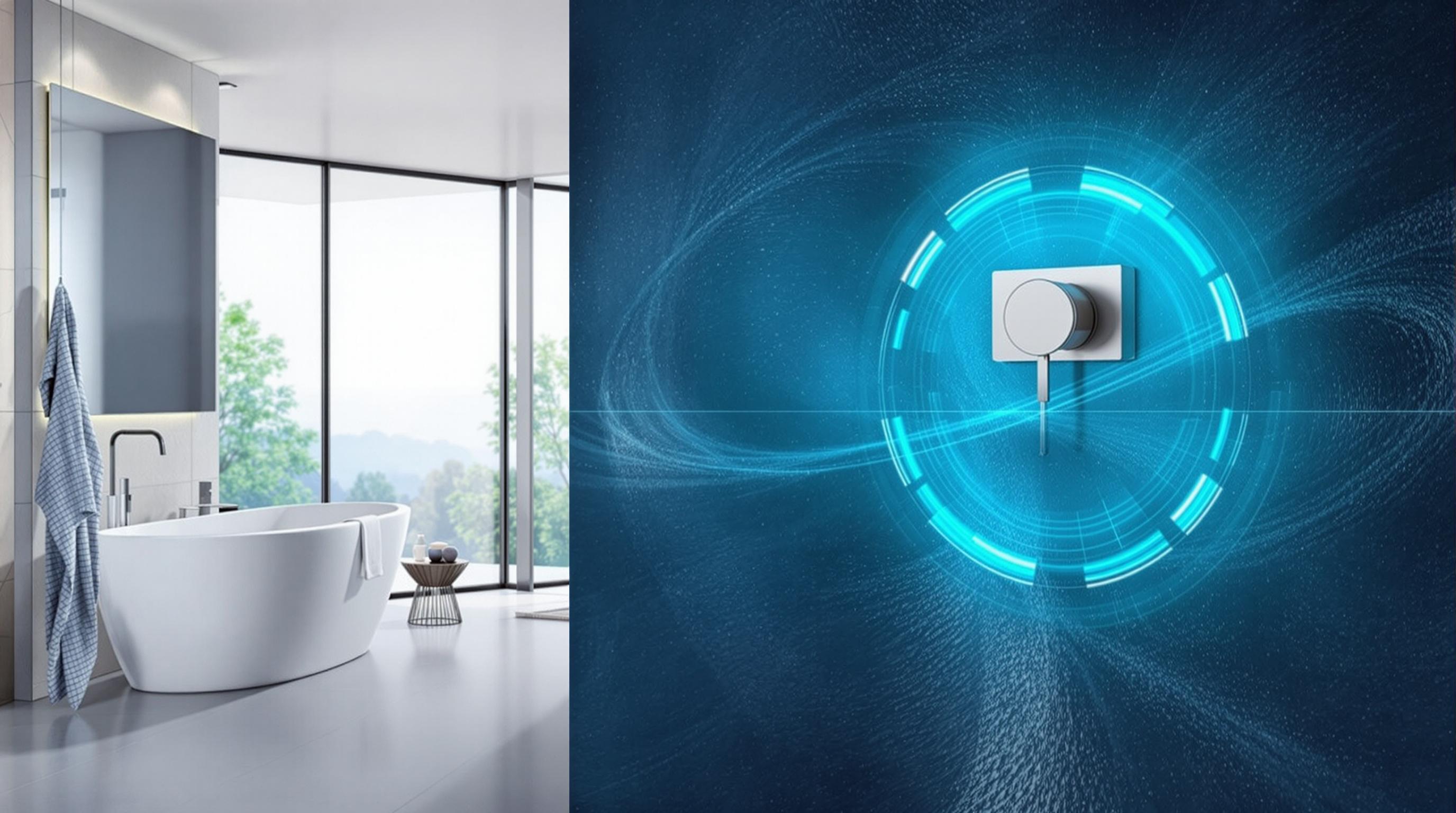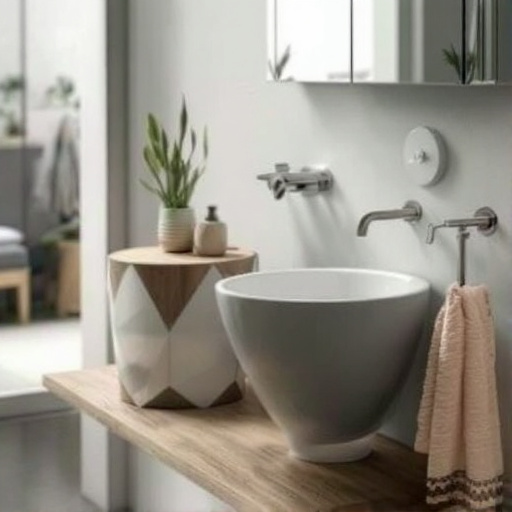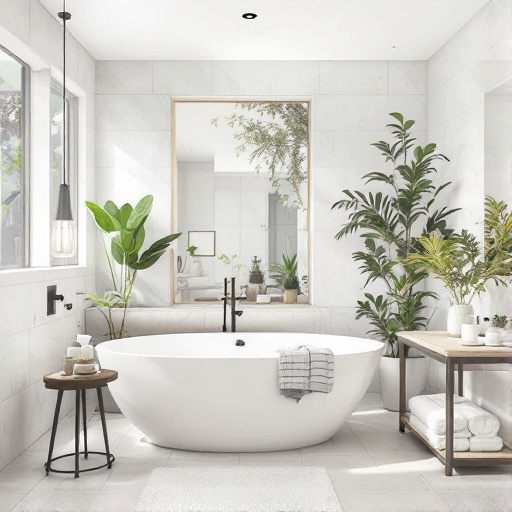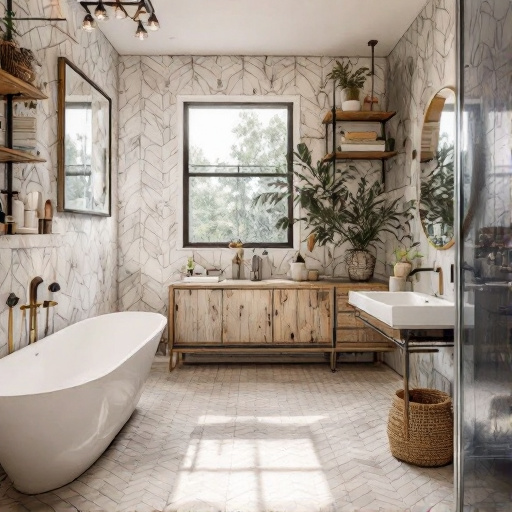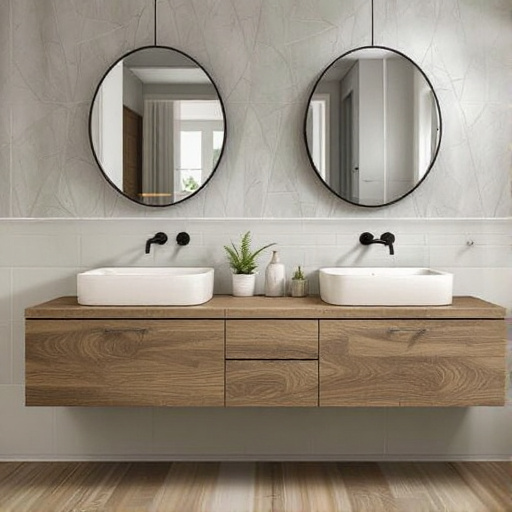Featured Articles
- Bathroom Design Beyond Boundaries: Exploring Biophilic Trends for Elevated Zen Experiences
- "Beyond the Basics: Uncovering the Secrets of Sustainable Bathroom Designs with Reclaimed Materials"
- Beyond the Tiles: Exploring the Surprising Role of Color Psychology in Bathroom Designs
- "Eco-Chic Lavatories: The Rise of Upcycled Materials in Bathroom Design Trends"
- Eco-Chic: The Rise of Biodegradable Bathroom Fixtures and Their Impact on Sustainable Design
Top 8 Smart Bathroom Innovations Launched in the Last 5 Years: A Comprehensive Buyer’s Review
Top 8 Smart Bathroom Innovations Launched in the Last 5 Years: A Comprehensive Buyer’s Review
Top 8 Smart Bathroom Innovations Launched in the Last 5 Years: A Comprehensive Buyer’s Review
1. Smart Toilets with Automated Features
Smart toilets have transformed the bathroom experience by combining hygiene, comfort, and technology. Over the last five years, models like the Kohler Numi 2.0 and Toto Neorest NX1 have introduced innovations such as heated seats, automatic lids, and built-in bidets with adjustable water temperature and pressure. These features not only increase cleanliness but also add a touch of luxury to everyday routines.
Additionally, many smart toilets now feature automatic flushing systems and night lights, making use more convenient and hygienic, especially in dim settings. Voice control integration and app connectivity allow users to customize settings via smartphone, enhancing overall user experience. The focus remains on reducing manual contact and improving sanitation.
Prices for smart toilets vary widely, generally ranging from $1,500 to over $10,000 depending on the model and included features. Buyers should consider installation costs as well, which can be substantial for advanced models. Sources like CNET and Consumer Reports provide detailed reviews to help consumers navigate these options.
2. Intelligent Showers with Digital Controls
Intelligent showers have become increasingly popular, offering precision water temperature control and programmable settings to match user preferences. Products like the Moen U by Moen Smart Shower and Kohler Konnect allow users to start showers remotely or set timers to conserve water and energy.
These systems often come with voice assistant compatibility, enabling users to control shower functions via Alexa, Google Assistant, or Apple Siri. Additionally, digital controls simplify operation for families, allowing each member to save personalized settings for the perfect shower every time.
Water conservation technologies integrated into these showers help reduce wastage without compromising comfort, an important factor given rising environmental awareness. Reports from the Environmental Protection Agency underscore the effectiveness of such innovations in residential water savings.
3. Smart Mirrors with Embedded Technology
Smart mirrors are reshaping bathroom rituals by integrating displays that offer useful information such as weather updates, news, and personal schedules while users get ready. Brands like HiMirror and Simplehuman have launched models with anti-fog technology and adjustable lighting to create ideal conditions for grooming.
Some smart mirrors incorporate facial recognition to provide skincare analysis and personalized advice, catering to beauty enthusiasts seeking tailored routines. Connectivity options include Bluetooth and Wi-Fi, allowing streaming of music or podcasts to enhance the bathroom atmosphere.
Industry analysts note that such features not only improve convenience but can also motivate healthier habits through real-time feedback. For consumers prioritizing aesthetics and functionality, smart mirrors represent a compelling investment in both tech and wellness.
4. Voice-Activated Bathroom Assistants
Integrating voice-activated assistants like Amazon Echo or Google Nest into bathrooms has created hands-free convenience previously unseen in this space. Users can now easily play music, adjust lighting, check calendars, or control other smart bathroom devices using simple voice commands.
Specialized bathroom speaker models are designed to resist humidity and water splashes, ensuring durability and safety over time. Moreover, voice assistants help reduce germs by minimizing the need to touch switches or screens, aligning with increasing hygiene awareness.
As the cost of these devices has decreased, their inclusion has shifted from luxury to necessity in many modern homes. Tech reviews from The Verge highlight the seamless integration and responsiveness of current bathroom-optimized voice assistants.
5. Automated Faucets with Water-Saving Technology
Automated faucets equipped with motion sensors have expanded beyond commercial settings into residential bathrooms. Leading models launched in recent years feature intelligent water flow control and temperature regulation, drastically reducing waste.
Innovations such as adaptive sensors learn user patterns to deliver water only when necessary and limit duration to conserve resources. Some faucets also provide filtered water options, supporting both hygiene and refreshment.
The EPA's WaterSense program endorses several smart faucet models that meet stringent water efficiency criteria, helping consumers reduce utility bills while promoting environmental responsibility.
6. Smart Lighting Systems Tailored for Bathrooms
Lighting technology has leaped forward with smart systems that adjust color temperature and brightness dynamically to suit different times of the day or specific tasks such as makeup application or relaxation. Philips Hue and LIFX are leading brands offering such capabilities.
These systems can be controlled via smartphone apps, voice commands, or automated schedules. Circadian rhythm-friendly lighting options help users wake up gently or unwind before bed, improving overall wellbeing through better sleep patterns.
Installation is relatively straightforward, and many smart lighting products are compatible with existing fixtures, making upgrades accessible. Certified energy-efficient bulbs also contribute to lowering electricity consumption.
7. Smart Scales with Health Monitoring
Beyond basic weight measurement, smart scales now offer comprehensive health data including body fat percentage, muscle mass, BMI, and even heart rate. Devices from Fitbit, Withings, and Garmin sync metrics to mobile health apps for ongoing tracking.
These scales aid users in setting realistic fitness and weight goals by providing detailed insights and historical trends. Some models support multiple users, ideal for family bathrooms or shared living spaces.
Medical professionals acknowledge the value of consistent home monitoring for chronic disease management and preventive care. Consumers interested in proactive health management find smart scales especially beneficial.
8. Smart Ventilation Systems with Air Quality Sensors
Bathroom ventilation has advanced with systems that automatically detect humidity levels, odors, and air quality, adjusting fan operation accordingly. Brands like Panasonic and Air King have introduced models that optimize airflow without manual input.
Features include quiet operation modes, energy-efficient motors, and integration with home automation platforms. Maintaining ideal humidity prevents mold growth and preserves fixtures, contributing to a healthier home environment.
According to studies published by the American Society of Heating, Refrigerating and Air-Conditioning Engineers (ASHRAE), such smart ventilation systems significantly improve indoor air quality and occupant comfort.
9. Smart Storage Solutions with Inventory Management
Recently introduced smart storage units utilize sensors and connectivity to help users track bathroom essentials like toiletries and medications. Alerts can notify users when supplies are low, promoting timely replenishment and reducing clutter.
Some innovative cabinets feature built-in charging stations for electric toothbrushes and grooming devices, integrating convenience with organization. Voice or app control facilitates access to inventory information remotely.
These intelligent storage innovations contribute to a streamlined bathroom experience, minimizing stress related to missing items and improving efficiency in daily routines.
10. Smart Waste Bins with Odor Control and Touchless Operation
Smart waste bins designed for bathroom use offer hands-free operation via motion sensors and advanced odor control technologies. Brands like Simplehuman have expanded their lines to include features like carbon filters and slow-close lids.
Touchless opening reduces bacterial transmission risks, an especially valuable benefit in maintaining a sanitary bathroom environment. Some models provide app notifications for fill levels, ensuring timely emptying.
While still a niche market, reviews indicate growing consumer interest as hygiene and convenience become top priorities. These waste solutions blend practicality with cutting-edge design.
